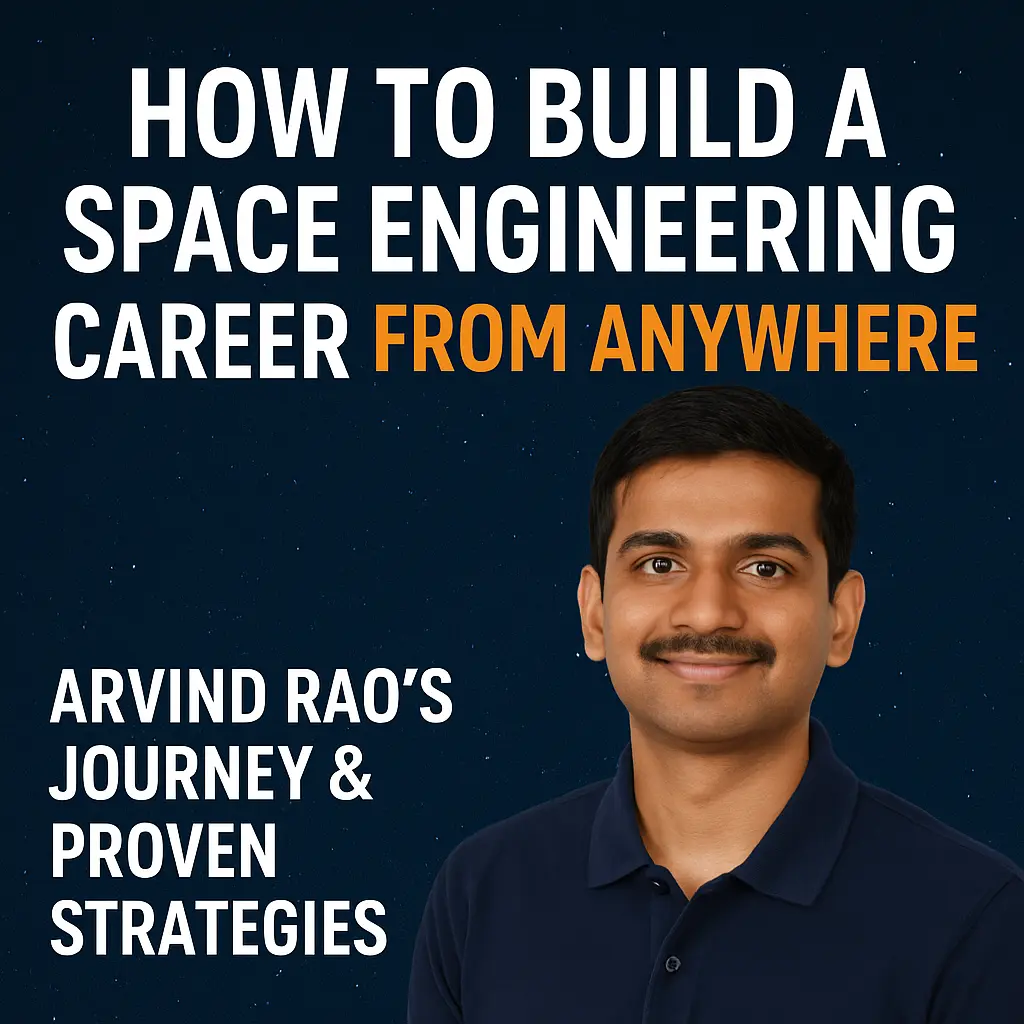In today’s interconnected world, students from all backgrounds have an unprecedented opportunity to enter the competitive and rapidly evolving fields of engineering and space science. With access to global resources, open-source tools, and innovative learning platforms like the Learning Hub of the SpaceInfo Club, aspiring engineers can build successful careers regardless of geographic or financial constraints.
This article explores practical strategies, educational pathways, and global opportunities for those interested in engineering—especially within the space industry. It also shares the inspiring journey of Arvind Rao, a young engineer from India whose story demonstrates what’s possible through curiosity, discipline, and strategic use of modern learning tools.
Why Online Learning Is a Game-Changer
Digital platforms like the SpaceInfo Club Learning Hub have transformed the way students acquire technical knowledge. These platforms offer structured courses, practical exercises, and access to niche topics often overlooked in traditional academic programs. Key advantages include:
- Accessibility to expert content: Learn from industry professionals and space engineers worldwide.
- Flexibility: Study at your own pace and integrate learning into a busy schedule.
- Specialized knowledge in space systems: Dive into areas like orbital mechanics, propulsion, or mission design.
- Skill development with hands-on simulations: Work with tools like STK and OpenRocket in guided projects.
By leveraging these tools, students can supplement their formal education and gain practical skills essential to the aerospace and engineering industries.
We recently partnered with CuriosityStream, a video platform that makes knowledge accessible to all, and here’s a new Series about New Horizon, about its destination, Pluto and its journey: Find Out More!
Strategies for Success in Online and Technical Learning
To truly benefit from online platforms and build a competitive profile, students should adopt these proven strategies:
- Set Clear Engineering Goals: Focus on areas such as spacecraft dynamics or control systems.
- Create a Study Plan: Allocate consistent time for learning and practice.
- Work on Real-World Projects: Apply what you learn through simulations or builds.
- Engage in Peer Discussions: Collaborate, troubleshoot, and network with aspiring engineers worldwide.
- Earn Industry-Recognized Certifications: Showcase your skills to future employers.
Supplementary Tools and Resources
The SpaceInfo Club Learning Hub provides access to curated open-source tools and datasets for aspiring space professionals:
- STK (Systems Tool Kit): For satellite mission analysis and orbital design.
- OpenRocket Software: Simulate your own rocket designs.
- Space-Track Data Portal: Real-time orbital mechanics and tracking tools.
Stay informed by subscribing to SpaceInfo Club’s Space Journals Digest or attending live webinars with engineers, astronauts, and researchers.
Career Pathways in Engineering
Engineering is a broad and opportunity-rich field. The SpaceInfo Club Career Center outlines clear entry points into high-demand disciplines:
- Aerospace Engineering Careers: Focus on satellites, propulsion, and exploration systems.
- Software Engineering in Space: Specialize in embedded systems, control code, or simulation algorithms.
- Mechanical and Robotics Engineering: Work on hardware, payloads, and robotic components.
For education and advancement:
Best Countries for Engineering Careers
Explore global opportunities using the SpaceInfo Club’s Engineering Salary Map:
| Country | Top Fields | Average Salary (USD/year) |
|---|---|---|
| USA | Aerospace, software, energy | $80,000–$130,000 |
| Germany | Mechanical, automotive | $60,000–$90,000 |
| Canada | Civil, electrical, space tech | $70,000–$100,000 |
| Australia | Infrastructure, mining, energy | $70,000–$110,000 |
| Switzerland | Research, biomedical, robotics | $90,000–$130,000 |
Browse visa guidance and work permit info for each country.
Success Story: Arvind Rao
Arvind Rao, from Coimbatore, India, turned his childhood passion for space into a global career—using the very same strategies outlined above.
Starting with small projects in high school, he joined the Learning Hub of the SpaceInfo Club to learn about orbital mechanics and propulsion systems. His work on a student-led satellite at IIT Madras gained recognition from ISRO, and he used SpaceInfo Hub’s simulation tools to prepare for national innovation challenges.
Arvind earned a full scholarship to the University of Stuttgart, interned at DLR, and is now a Propulsion Systems Engineer at ESA. He also mentors students back in India through a virtual academy built on SpaceInfo Club’s platform.
“The SpaceInfo Club’s Learning Hub gave me access to the kind of knowledge and tools I couldn’t find anywhere else,” Arvind says. “It taught me to build, test, and think like a systems engineer—before I ever entered the workforce.”
Conclusion
Whether you’re a high school student or a young professional, the space and engineering industries offer a powerful path forward. Use platforms like the Learning Hub of the SpaceInfo Club to gain critical skills, earn certifications, and connect with mentors.
With the right tools, consistent learning, and community support, your journey into space engineering can begin right now—no matter where you’re starting from.



